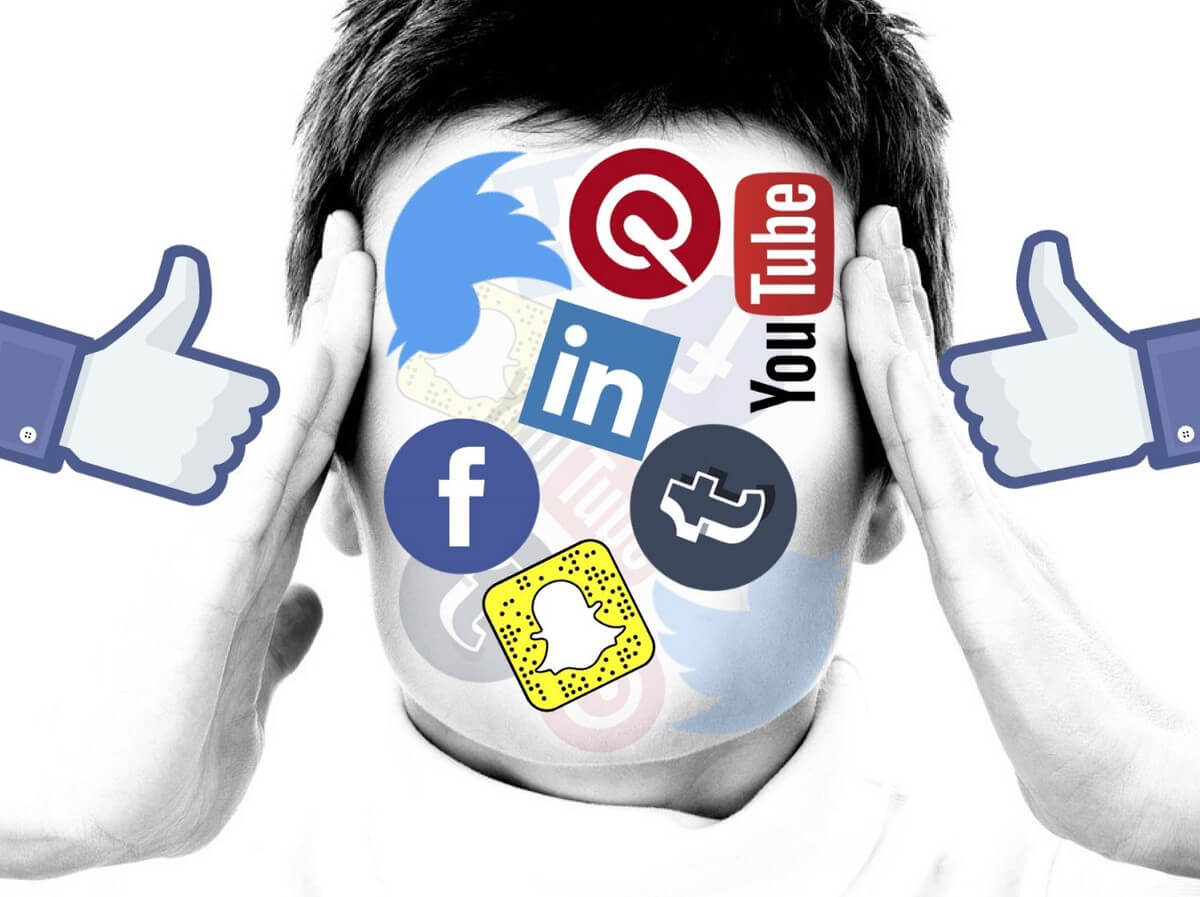The Effects of Social Media on Mental Health
There are many positive and negative effects of social media on mental health. Fortunately, there are also a number of ways in which we can make social media use more beneficial to our health.
Table of contents
- The Potential Negative Effects of Social Media
- The Role of Social Media in Social Comparison
- Ways to Use Social Media Mindfully
- Positive Effects of Social Media
- The Role of Dopamine in Social Media Use
- The Effect of Fitspiration and Social Comparison on Mental Health
- Mindfulness and Its Role in Reducing Rumination
- Setting Boundaries for Social Media Use
The Potential Negative Effects of Social Media
The potential negative effects of social media on mental health are increasingly being discussed in the mainstream media. While some studies suggest that social media can improve the mental well-being of individuals, other studies suggest that social media can worsen the symptoms of depression and anxiety.
A number of studies have shown a correlation between heavy social media use and increased risk of depression, anxiety, loneliness, and self-harm. But many studies remain unconfirmed and a lack of experimental data make it difficult to draw causal conclusions.
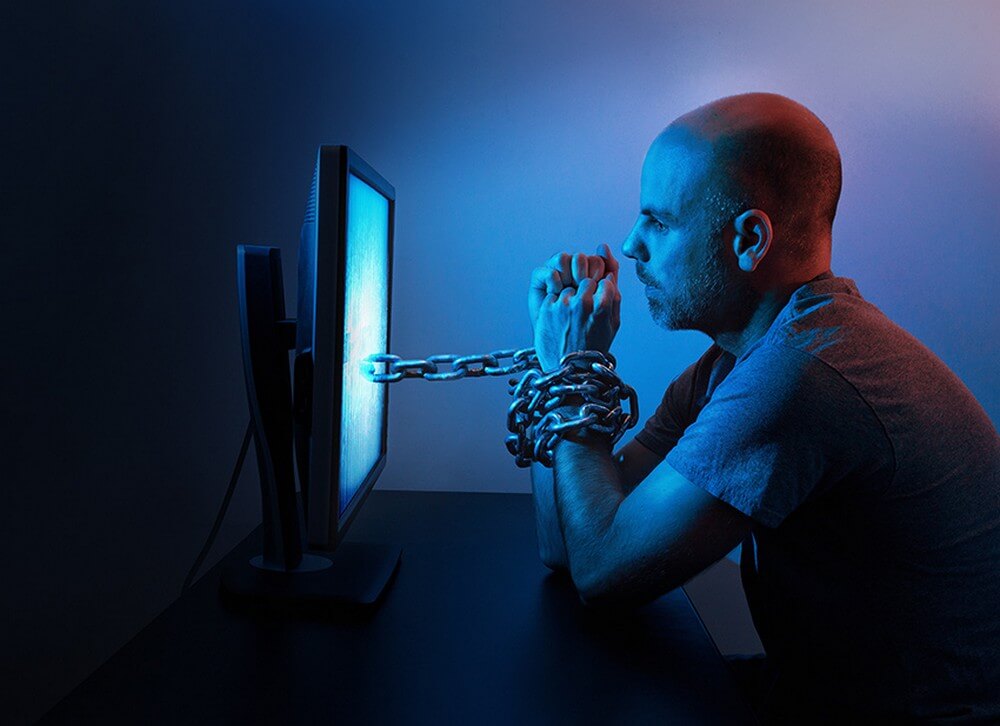
One study of young adults with serious mental illness found that the majority of users were using social media to feel less isolated. Other studies have found that people with severe mental illnesses are more likely to be the target of online harassment, as well as to experience more hostility in face-to-face settings.
Another study found that college students who used Facebook reported a significant increase in anxiety disorder. However, the study was limited by its cross-sectional nature and may not reflect the general population.
Studies have also suggested that social media use may increase body image concerns, as well as stress and depression. Research has also linked social media use to a greater prevalence of suicidal thoughts.
Among teens, the number of users has been increasing. The prefrontal cortex, the area of the brain responsible for emotional responses to social rewards, is not as developed in teenagers as in adults.
The Role of Social Media in Social Comparison
Several studies have shown that social media is associated with mental health issues, including anxiety and depression. This is due to social comparison, which is the process of assessing your position in society.
Social comparison is a psychological process that activates your brain’s reward center and releases dopamine. Dopamine is a neurotransmitter that follows a positive experience such as eating chocolate or winning on a slot machine. The goal of social media is to provide users with a sense of connection with other people.
However, too much use of social media can worsen symptoms of anxiety and depression, and may also mask underlying problems. Some research has shown that heavy users are at risk for suicide and self-harm.
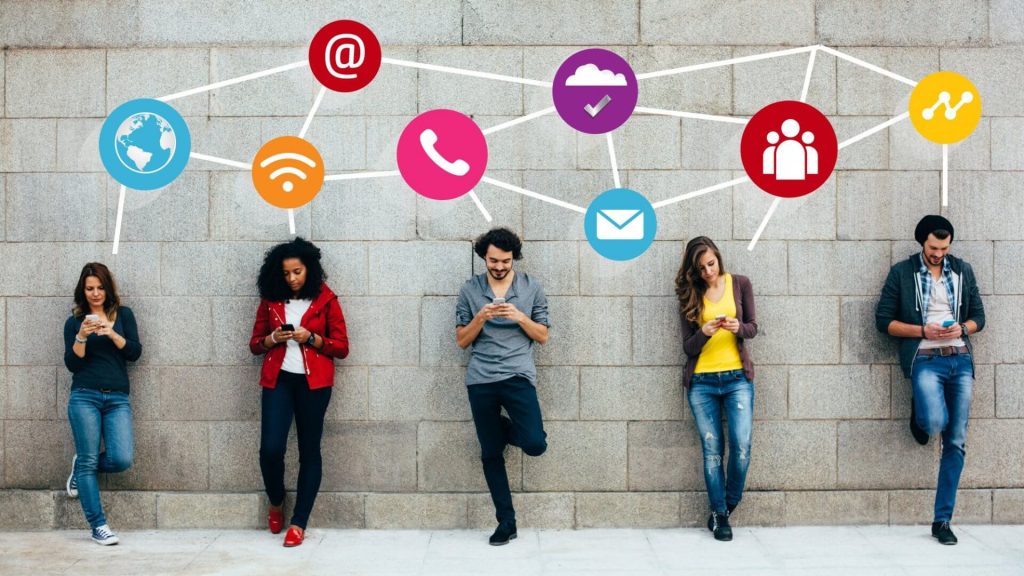
A recent study compared the effects of social media on mental health. It found that social media use worsened anxiety and increased depression among students. These findings are consistent with previous literature.
Another study examined the effect of fitspiration, or the tendency to compare oneself to others, on mental health. Researchers found that individuals who had a strong social comparison orientation showed a higher likelihood of experiencing negative emotions, such as sadness and depression, after viewing a fitspiration post. Those with a lower comparison orientation did not show such feelings.
Study 2 measured the effect of social comparison on students’ attitudes and behaviors toward careers. It found that individuals with a strong comparison orientation were more likely to perceive themselves as having less than ideal careers.
Ways to Use Social Media Mindfully
Social media can be a great way to connect with others, but using it for the wrong reasons can lead to negative consequences. Using it mindfully can help you avoid depression and anxiety.
Mindfulness is a mental health term that refers to the act of living in the present moment. It involves a focus on evaluating your current situation in a logical, unbiased manner.This is not an easy feat. For instance, if you are going to drink coffee, make sure to leave your phone at home and focus on your senses.
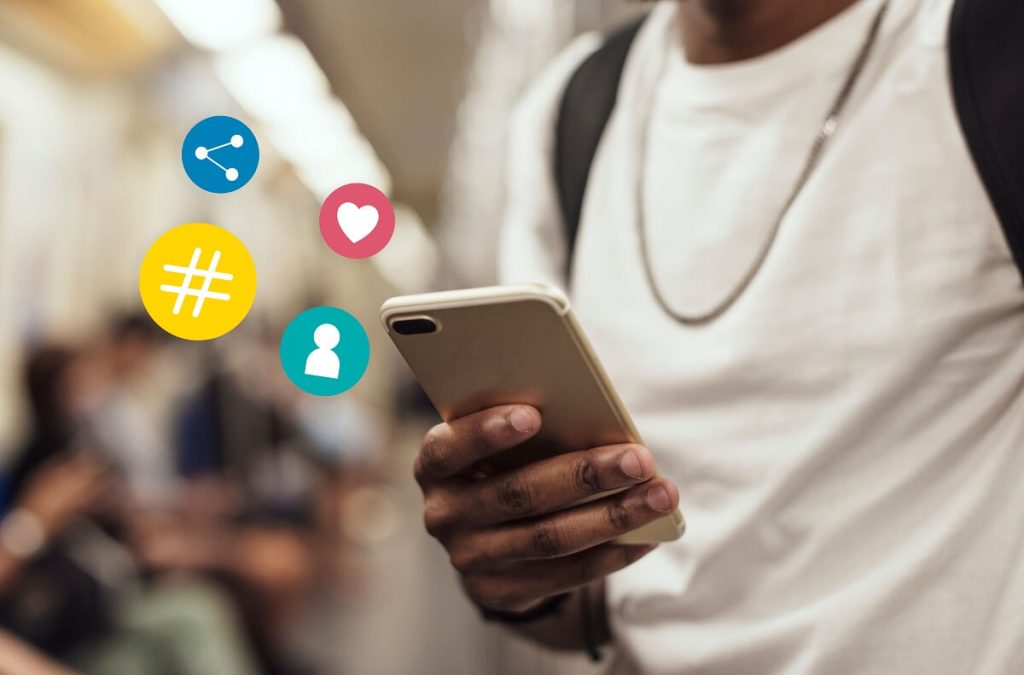
In addition to this, mindfulness may help you avoid rumination. Rumination is the tendency to dwell on a situation. When you are in the midst of a negative experience, ruminating about it can only exacerbate your feelings.
However, mindfulness does not always prevent rumination. A recent study suggests that it could reduce rumination in social media.Several studies have shown that increased social media use is associated with a reduction in happiness. Studies also show that it can exacerbate symptoms of stress and anxiety.That means effects of social media on mental health is bad way.
There are a number of ways to use social media for your benefit. One of the best ways is to set boundaries. Be mindful of how much time you spend online and unfollow people you don’t like. Set a goal of how many minutes you spend each day on social media.
Positive Effects of Social Media
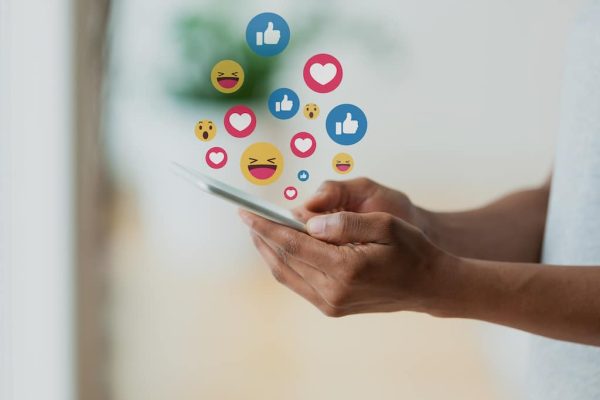
Connection and Communication
We can communicate with individuals from all over the world thanks to social media sites. They allow us to interact with friends and family, meet new people, and join in communities of others who have similar interests. This sense of belonging might assist to alleviate feelings of isolation and loneliness.
Information and Awareness
Social media is an effective tool for disseminating information and raising awareness about critical topics. It may be used to educate people, promote social causes, and draw attention to global events.
Self-Expression and Creativity
Social media platforms allow for self-expression and creativity. Users may post their views, ideas, and creative works, as well as receive comments and participate in conversations. This can increase self-esteem and create a sense of accomplishment.
The Role of Dopamine in Social Media Use
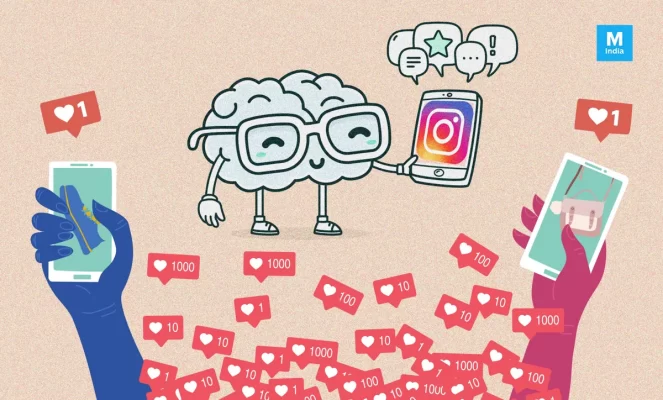
Dopamine, a neurotransmitter linked to reward and pleasure, is important in social media use. Social networking sites are designed to increase dopamine release, resulting in a sensation of pleasure and fulfilment.
Excessive stimulation, on the other hand, can lead to addictive behaviours and worsen mental health difficulties.
The Effect of Fitspiration and Social Comparison on Mental Health

Social media platforms are rife with fitspiration and social comparison. While they might motivate people to live better lives, they can also cause unpleasant emotions like despair and depression, especially in people who have a strong social comparison orientation.
Mindfulness and Its Role in Reducing Rumination
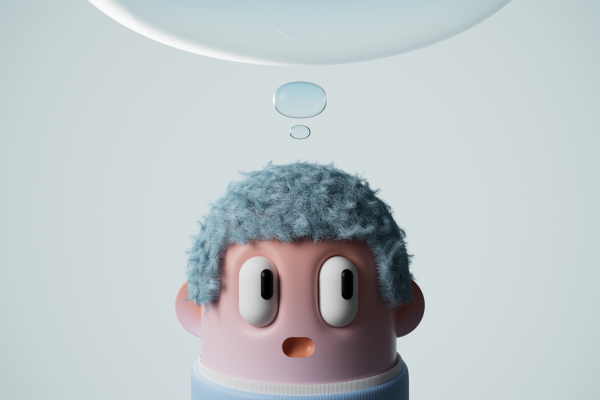
Mindfulness, or the practise of remaining present and attentive, can assist in mitigating the negative consequences of social media use.
It has the potential to minimise rumination, or the propensity to linger on bad events, which is frequently increased by social media. Individuals may use social media more healthily and effectively by practising mindfulness.
Setting Boundaries for Social Media Use
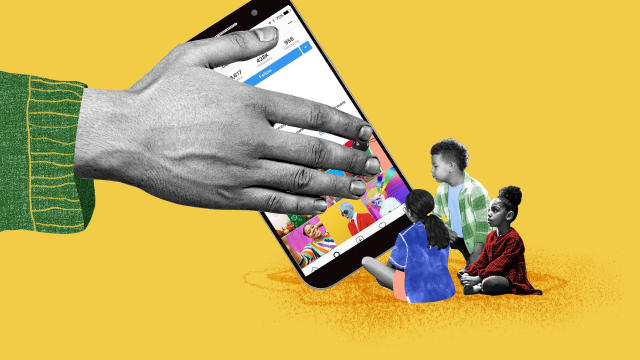
Setting social media boundaries is critical for preserving mental wellness. Limiting the amount of time spent on social media, unfollowing accounts that elicit unpleasant feelings, and utilising social media more consciously can all contribute to this.
Individuals may enjoy the benefits of social media without jeopardising their mental health by adopting and adhering to these limitations.
You can click here to access the research prepared on the effects of social media. You may also like: Tips for Using Social Media on Personal Relationships.




